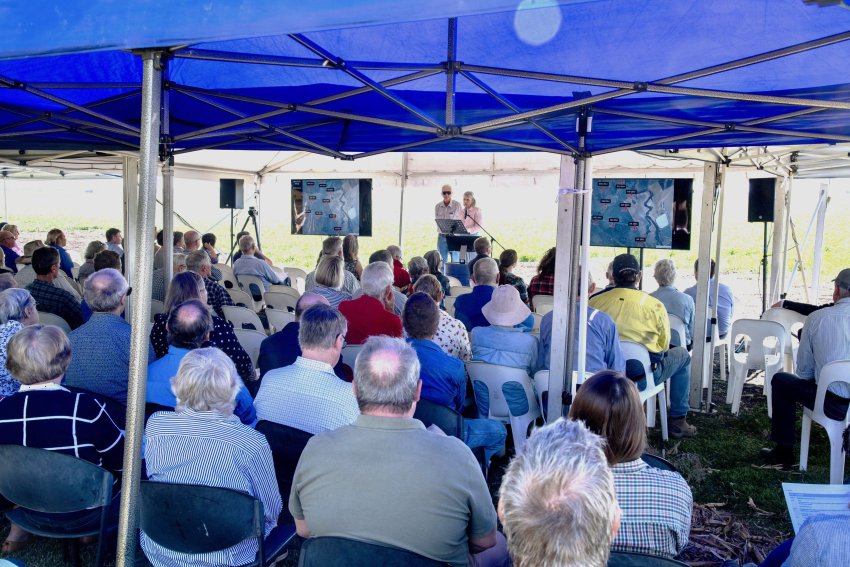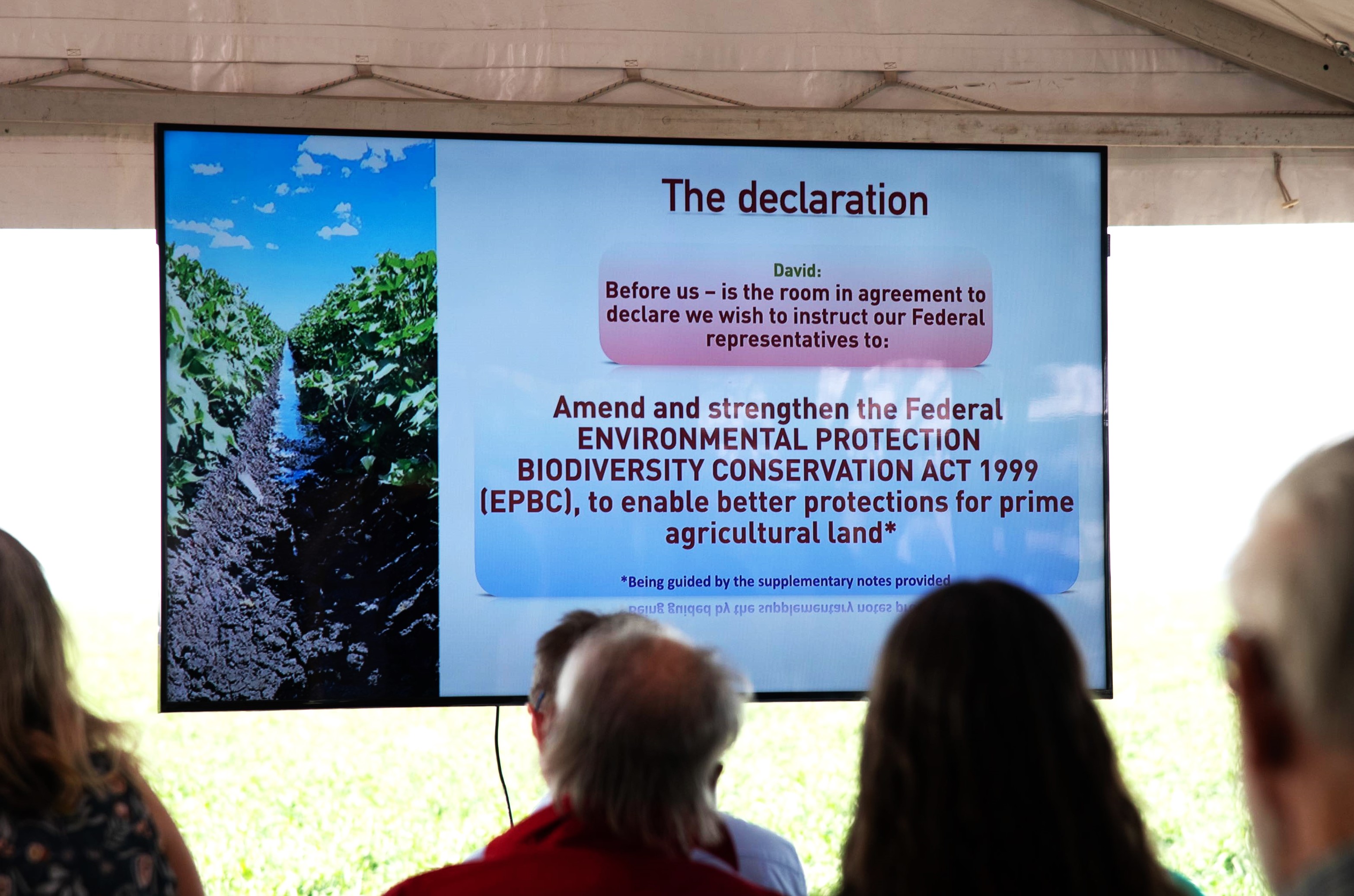
Nearly 200 quietly furious farmers met for a conference on August 26 at Glendon, Nangwee, a farm on the prime cropland of the Condamine Alluvium, to discuss protecting their black soil floodplain from coal seam gas (CSG) mining.
They gathered on the black soil and, with a backdrop of lush green cereal crops growing as far as the eye could see, heard hard facts on the devastation caused to soil, water and communities by coal and CSG extraction. Speakers included soil and water experts, environmental lawyers, climate scientists and local landowners who shared experiences of dealing with Arrow Energy.
An ecologist reported on her study of the endangered Condamine Earless Dragon, which only lives on the Condamine Floodplain in grassy areas, such as road verges.
With only 6.15% of the country being cultivated land and only 4.1% being arable land under crops prime farmland is precious: too much is being lost to urban development.
Queensland’s Condamine Alluvial Floodplain and New South Wales’s Liverpool Plains make up a large part of the best remaining cropland and both risk being destroyed by CSG mining.
Farmers from the Liverpool Plains reported on how they had battled and defeated attempts to mine coal on their land, only to have Scott Morrison’s “gas-led recovery” threat.
Shenhua, China’s state-owned corporation, had agreed in 2021 to give up its Watermark open-cut coal mine plan at Breeza, south of Gunnedah, ending a 13-year battle with local farmers. Then-Coalition Treasurer Dominic Perrottet said that cancellation “will mean that no open-cut coal mining can occur in the area”.
The $100 million payout to Shenhua came on top of $262 million in public funds paid to the company in July 2017 in exchange for it surrendering just over half its exploration area.
But Morrison’s gas-led recovery plan has been quietly continued by Labor. It means gas corporations such as Santos, are now champing at the bit to drill the prime crop-growing soil and water of the Liverpool Plains.
Condamine floodplain farmers Zena Ronnfeldt, Wes Back and Bev Newton described the subsidence caused by CSG mining to the farmlands in their district of Kupunn, which have been managed by local farming families for generations.
On a floodplain, where the land drops only millimetres across thousands of acres, allowing water to run gently and soak in across the whole area, uneven subsidence of up to 15 centimetres has already caused erosion and extensive water pooling issues, removing topsoil and creating boggy areas that cannot be farmed, driven over and where crop yields diminish due to water-logging.
Attempts to replace the topsoil will take years of good seasons to have any impact and we are now in a drought.
Back described how Arrow Energy had illegally directionally drilled under his land, causing uneven subsidence. Although Arrow was fined $1 million for its breach of Land Access Laws, the $1 million fine went into Queensland government coffers and the affected farmers have received zilch, while left with having to try to fix the damage. He reported that Arrow continues to illegally use the bore beneath his land. There is also a plan to bore beneath the Condamine River.
Scenic Rim Mayor Greg Christensen spoke, via Zoom, and Independent Senator David Pocock and local councillors attended.
Former Independent MP Tony Windsor’s federal water trigger amendment to the Environment Protection and Biodiversity Conservation Act 1999 (EPBC Act) was watered down so that mining decisions are only referred to scientists for assessment if the federal minister chooses to do so. This means that new coal mines and CSG mining are still being approved, despite their devastation to the soil and water.
farmers_mtg_3.jpeg

Everyone present agreed the loopholes need to be closed. The meeting unanimously voted to amend and strengthen the federal EPBC Act to change the words “large coal mining development” to “coal mining development” when it comes to protecting water resources and to extend that protection to prime agricultural land.
It also said amendments were needed to definitions so that “coal mining” includes CSG mining, and “prime agricultural land” would include land that has inherent capacity for long-term sustainable agricultural production.
Pocock said he would present Chinchilla graziers’ E-petition to parliament, calling for an immediate halt to CSG mining until a solution is found for the safe disposal of the industry’s toxic salt waste.
All present, who were not lawyers or government employees, signed the salt petition. Although the E-petition closed on August 31 with 732 signatures, the paper version is still being added to in rural electorates across the country.
[Elena Garcia is a regenerative grazier in the Western Downs in Queensland.]